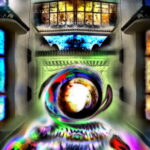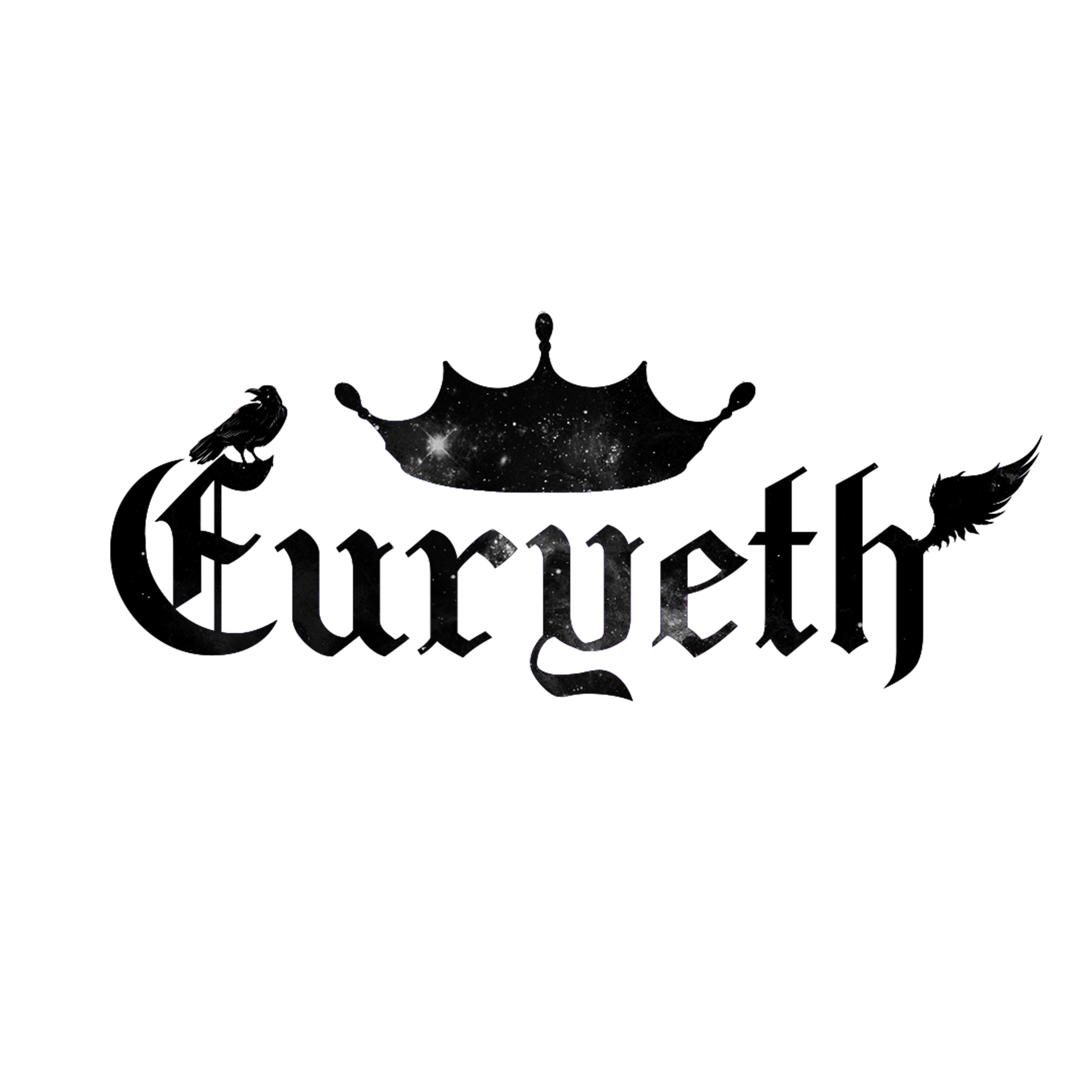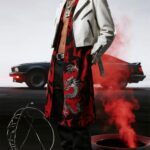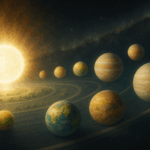-
Chapter Forty-Eight: Navigating the Modern World
Euryeth awoke with a start, the serene forest and its ancient wisdom fading into the recesses of his memory. He found himself in a bustling metropolis, a stark contrast to the verdant tranquility he had just experienced. Towering skyscrapers pierced the sky, their glass facades reflecting the bright lights of a city that never seemed to sleep. The air was filled with the sounds of honking cars, hurried footsteps, and the constant hum of machinery—a symphony of modern life.
As he navigated the crowded streets, Euryeth felt a palpable tension in the air, a sense of urgency that seemed to drive everyone around him. The modern world was a place of ceaseless motion, where time was both a commodity and a tyrant. People moved with purpose, their faces set in determined expressions, each one a cog in the vast machinery of society.
Euryeth observed the myriad of jobs that defined this era. There were the office workers, ensconced in their glass towers, their lives revolving around spreadsheets, meetings, and deadlines. The entrepreneurs, ever on the move, chasing the next big idea, their minds buzzing with innovation and risk. The gig workers, flitting from one task to another, trading stability for flexibility in a world that demanded both.
In this modern landscape, laws and regulations formed the bedrock of society. Euryeth noticed how they shaped every aspect of life, from the towering corporations to the smallest street vendors. There were laws governing trade, employment, technology, and personal conduct—a complex web designed to maintain order in a world teetering on the edge of chaos. The legal system was both a guardian and a labyrinth, offering protection and presenting obstacles in equal measure.
Money, in this world, was the lifeblood that fueled the endless cycle of consumption and production. The cost of living was a constant concern, with individuals striving to balance their earnings against the relentless demands of rent, food, healthcare, and leisure. Euryeth saw the disparity between wealth and poverty, a chasm that defined the social implications of this age. For some, money brought freedom and opportunity; for others, it was a relentless struggle for survival.
The ideologies of this modern world were as diverse as its inhabitants. There were those who believed in progress and innovation, champions of technology and globalization. Others yearned for simplicity, advocating for sustainability and a return to nature. There were voices of equality and justice, fighting against systemic oppression, and those of control and power, seeking to maintain the status quo. It was a world of contrasts, where ideals clashed and coalesced, shaping the fabric of society.
Euryeth’s keen mind drew parallels between the modern world and his own vampiric nature. Just as he navigated the delicate balance between his thirst for blood and his pursuit of wisdom, so too did humanity navigate the tension between their basest instincts and their loftiest aspirations. He saw the modern world as a reflection of his eternal struggle, a place where the quest for power and control was as omnipresent as the quest for meaning and purpose.
Walking through the city, Euryeth’s heightened senses allowed him to perceive the undercurrents of emotion and desire that flowed through the crowds. He could sense the ambition that drove the young professional, the desperation of the homeless man on the corner, and the quiet contentment of the elderly couple walking hand in hand. These emotions, raw and unfiltered, painted a complex tapestry of human existence.
He found himself drawn to the philosophical implications of time in this modern age. Time, once an abstract concept, had become a commodity, bought and sold, valued and wasted. People spoke of “spending time” and “saving time,” as if it were a tangible resource. Euryeth pondered the irony of this modern fixation on time, knowing all too well the curse of immortality. For him, time was infinite, a vast expanse stretching into eternity. Yet, for these mortals, it was fleeting and precious, slipping through their fingers like sand.
In a quiet corner of a bustling café, Euryeth met a scholar named Dr. Amelia Graves, whose profound understanding of time intrigued him. They spoke at length about the nature of existence, the constraints of time, and the paradox of living in a world obsessed with progress yet bound by the inexorable march of seconds and minutes.
“Time is both our greatest gift and our greatest burden,” Dr. Graves remarked, her eyes reflecting a deep-seated wisdom. “We are constantly aware of its passage, yet we often fail to appreciate the present moment. We live in anticipation of the future and in regret of the past, rarely savoring the now.”
Euryeth nodded, resonating with her words. “For me, time is an endless continuum. I have witnessed centuries unfold, yet I am often haunted by the moments I have lost, the decisions I have made. Immortality is not freedom from time, but a different kind of bondage.”
Their conversation delved into the societal implications of this temporal obsession. They discussed the relentless pursuit of success, the pressure to achieve, and the societal norms that dictated one’s value based on productivity and accomplishment. Euryeth saw how these pressures mirrored his own internal battles, his quest for meaning in a world where he was forever an outsider.
The night grew deeper, and as the city lights cast long shadows, Euryeth found himself contemplating the role of power and control in this modern era. Was it truly a game of power, where the strongest and most cunning rose to the top? Or was it a game of control, where the systems in place ensured that only a select few could navigate the intricate labyrinth of society?
He saw the allure of power in the ambition that drove many, yet he also sensed the fear that underpinned the desire for control. The fear of uncertainty, the fear of failure, and the fear of insignificance. These fears, masked by the pursuit of wealth and status, created a society perpetually on edge, always striving, never content.
Euryeth’s vampiric nature offered him a unique perspective on these human struggles. He understood the primal instincts that drove them, the hunger for more, the insatiable thirst for validation. Yet, he also saw the potential for transcendence, the moments of genuine connection, and the flashes of true wisdom that punctuated their lives.
As he wandered the city streets, he encountered a young artist named Sarah, whose paintings captured the essence of the human spirit in all its complexity. Her work spoke of dreams and despair, of love and loss, of hope and resignation. Euryeth saw in her art a reflection of his own journey, a testament to the resilience and beauty of the human condition.
In a dimly lit gallery, surrounded by Sarah’s evocative paintings, Euryeth and Sarah engaged in a deep conversation about the nature of freedom in this modern world.
“Freedom,” Sarah mused, “is a paradox. We have more choices than ever before, yet we are often paralyzed by them. We seek independence, yet we crave connection. We desire authenticity, yet we conform to societal expectations.”
Euryeth listened intently, his mind absorbing her insights. “True freedom,” he replied, “is not the absence of constraints, but the ability to navigate them with grace. It is the courage to live authentically, to embrace both our light and our darkness, and to find meaning in our journey.”
Their conversation echoed the wisdom Euryeth had gathered from his own timeless existence. He saw how the modern world, with all its complexities and contradictions, was a crucible for growth and transformation. The challenges it presented were opportunities to deepen one’s understanding of self and the world, to forge connections that transcended the superficial and the temporal.
As the first light of dawn began to break, Euryeth stood at the edge of the city, gazing out at the horizon. He felt a sense of purpose, a renewed determination to navigate this modern world with the wisdom he had accumulated over centuries. He knew that his journey was far from over, that each step he took would bring new insights and challenges.
About Me
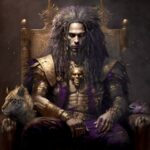
Euryeth
Artist
Omar Alami Known As Euryeth, Artist and Digital Marketer, Writer, Tactician, Musician … I Think The Abilities Of People Transcend Definitions in Words and Labels Among Other Things, I Do Have a Purpose and I Do Have A Goal and A Plan, And I Will Do My Ultimate Best In Achieving It While Being a Lotus of Wealth and Knowledge in Order To Shape a Better Future, To Have Value and To Be Able To Actually Help In Materialistic Verse and In The Virtual and Spiritual and Emotional …
Media
Photos
Videos
Audios
Files
Recent Posts
